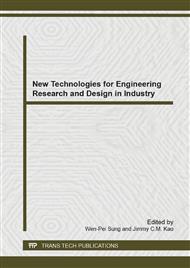p.1816
p.1820
p.1824
p.1828
p.1834
p.1838
p.1843
p.1847
p.1853
The Study on Fire Spreading Based on Mobile Agent and Grid Technology
Abstract:
In order to build a truly open OpenDSS and enhance the complexity of decision-making DSS for solving the problem of Fire spreading. a new model was given based on mobile Agent Open Decision Support System in grid environment. Making use of the intelligence of MAS and adaptive capacity, based on the reasoning mechanisms for task decomposition and resource decision-making grid matching, described in detail layer program CBR-based reasoning mechanism of the Agent and its operation flow and interactive mechanism, put the complexity of distribution of decision-making problem solving to the grid nodes on the environment, implementation of parallel asynchronous decision-making problem solving. Optimize distribution through the logistics of the problem MABODSS design, it proved to improve the system's intelligence and operational efficiency.
Info:
Periodical:
Pages:
1834-1837
Citation:
Online since:
June 2014
Authors:
Keywords:
Price:
Сopyright:
© 2014 Trans Tech Publications Ltd. All Rights Reserved
Share:
Citation:


